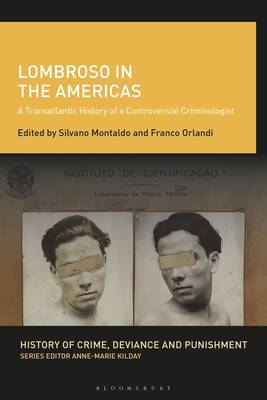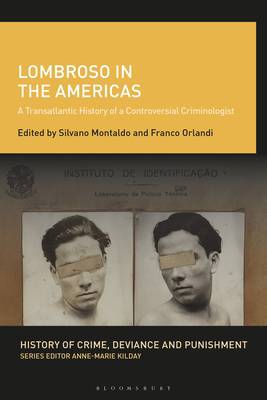
- Afhalen na 1 uur in een winkel met voorraad
- Gratis thuislevering in België vanaf € 30
- Ruim aanbod met 7 miljoen producten
- Afhalen na 1 uur in een winkel met voorraad
- Gratis thuislevering in België vanaf € 30
- Ruim aanbod met 7 miljoen producten
Zoeken
Lombroso in the Americas
€ 195,45
+ 390 punten
Omschrijving
This volume explores, for the first time, the multifaceted influence and impact of Italian criminologist Cesare Lombroso (1835-1909) in the Americas from the late nineteenth century to the mid-twentieth century.
Through a transatlantic and interdisciplinary lens, Lombroso in the Americas investigates how and why this controversial thinker became the most influential criminologist of his time and a major figure of positivist culture in the American continent. The volume is divided into four thematic parts. Part one explores the reception and circulation of Lombroso's theory of atavism and the born criminal in Argentina, Bolivia, Chile, Peru and the USA, highlighting its impact on national cultural debates and criminal justice reforms. Part two examines how his ideas shaped discourses on race and eugenics in Mexico, the USA and Peru in relation to native populations, immigrants, and minority groups such as Italians and Jews. Part three opens up new lines of research in the Lombroso studies, with essays on criminological readings of South American mass culture; the complex relationship between Argentinian anarchism and criminal anthropology; the American photographic collection of the Lombroso Museum; Lombroso's influence on emerging ethnological interest in Afro-American cultures in Brazil and Cuba. Finally, part four evaluates Lombroso's enduring legacy in shaping prison and police practices, bio-criminological research as well as gender and racial stereotypes in Cuba, Brazil, the USA and Argentina.# By charting Lombroso's influence and impact across North, Central and South America, this volume breaks new ground in the history of criminology. It opens up fresh avenues of inquiry into positivist culture and ideology, and provides rich insight into the transatlantic circulation of his ideas and the development of modern criminology in the Americas.Specificaties
Betrokkenen
- Uitgeverij:
Inhoud
- Aantal bladzijden:
- 336
- Taal:
- Engels
- Reeks:
Eigenschappen
- Productcode (EAN):
- 9781350571211
- Verschijningsdatum:
- 11/12/2025
- Uitvoering:
- Hardcover
- Formaat:
- Genaaid
- Afmetingen:
- 156 mm x 234 mm
- Gewicht:
- 644 g

Alleen bij Standaard Boekhandel
+ 390 punten op je klantenkaart van Standaard Boekhandel
Beoordelingen
We publiceren alleen reviews die voldoen aan de voorwaarden voor reviews. Bekijk onze voorwaarden voor reviews.







